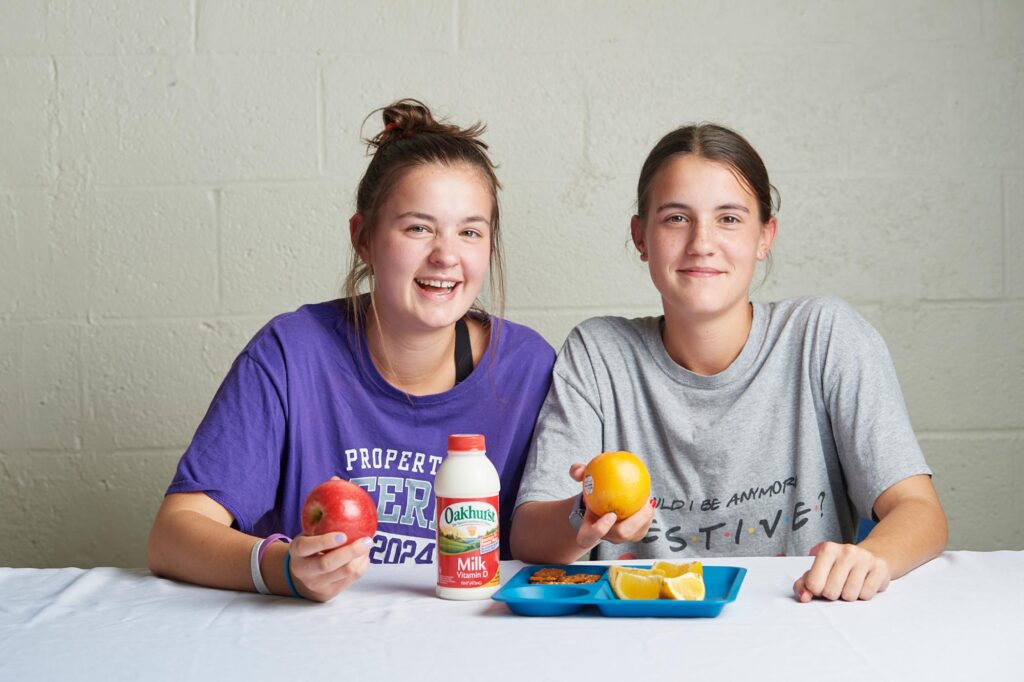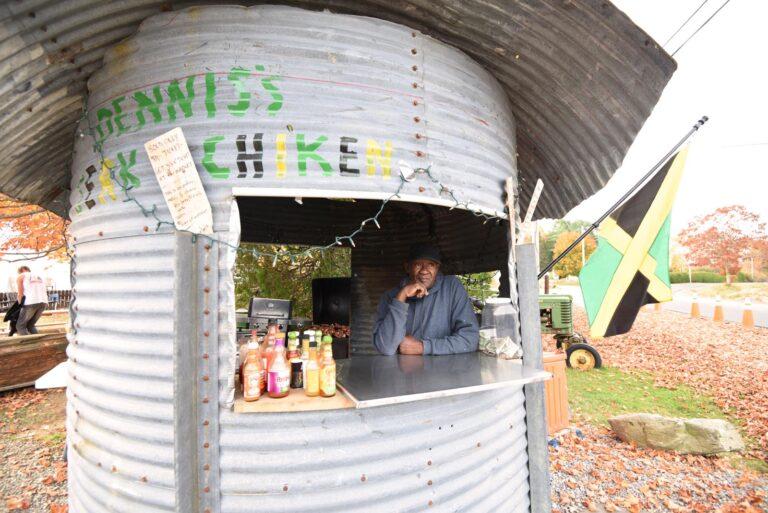It’s no secret a full belly first thing in the morning gives a student a leg up on learning. Brunswick-based Full Plates Full Potential is a nonprofit organization working to help kids learn better at any time of day.
Since the mid-1940s, federal programs have made free and reduced lunches available to students whose families meet certain financial qualifications. The economic reality for many families today, however, is while they don’t meet federal income guidelines for these programs, they do experience food insecurity. Congress enacted emergency legislation during the pandemic making school meals free for all kids. When those measures sunset in June 2021, Maine lawmakers stepped up with the School Meals for All bill, which earmarked $10 million to keep breakfast and lunch freely available to all students here. According to the Maine Department of Education, there has been a 16% increase in lunch participation and a 23% increase in kids eating breakfast since the bill passed.

Full Plates Full Potential staff advocated for this legislation. Executive Director Justin Strasburger says his nonprofit’s goal is to get as many meals as possible to Maine’s population of 173,000 pre-K through 12th-grade kids. It does so by helping school officials, nutritionists, teachers, and cafeteria staff better execute programs already in place. “One of the best ways we can confront child hunger is by ensuring maximum usage of [existing] nutrition programs,” he says.
The Full Plates Full Potential team helps schools access available state and federal funds through advocacy and technical assistance. When government funds fall short, the nonprofit awards grants to schools to fund innovative changes in how they feed hungry kids. For example, one Full Plates Full Potential grant allowed a school to expand breakfast access by enabling it to buy a meal delivery cart, while another helped Portland high school staff collaborate with a local food justice organization to create meals better suited to the student body’s cultural diversity.

Lunch is built into a traditional school day, but breakfast is trickier to address since not all students arrive at school in time to eat a morning meal before class starts, explains Strasburger. The passage of the state’s Breakfast After the Bell legislation in 2019 made it policy for schools where at least half of the student body is eligible for free or reduced meals to serve breakfast to kids where they are, in their classrooms. Across the state, 91% of districts report they use the model in their schools. Cafeteria teams have worked hard to offer breakfast foods kids enjoy, like smoothies, yogurt parfaits, fresh fruit, breakfast bars, and savory pastries made from Maine grains.
Full Plates Full Potential’s $1.3 million budget is primarily funded via individual and foundational philanthropy. It also partners with food businesses across Maine through a program called FEED KIDS, whereby businesses committed to ending child food insecurity donate a portion of their sales to the organization.

In the end, Strasburger says Full Plates Full Potential doesn’t want to be a permanent foothold in Maine’s school nutrition infrastructure. Through policy work, technical support, and grants, he hopes in the short term to help create lasting systems that end food insecurity for Maine kids. “We have a real goal of working ourselves out of our jobs,” says Strasburger.
For more information, visit fullplates.org.













